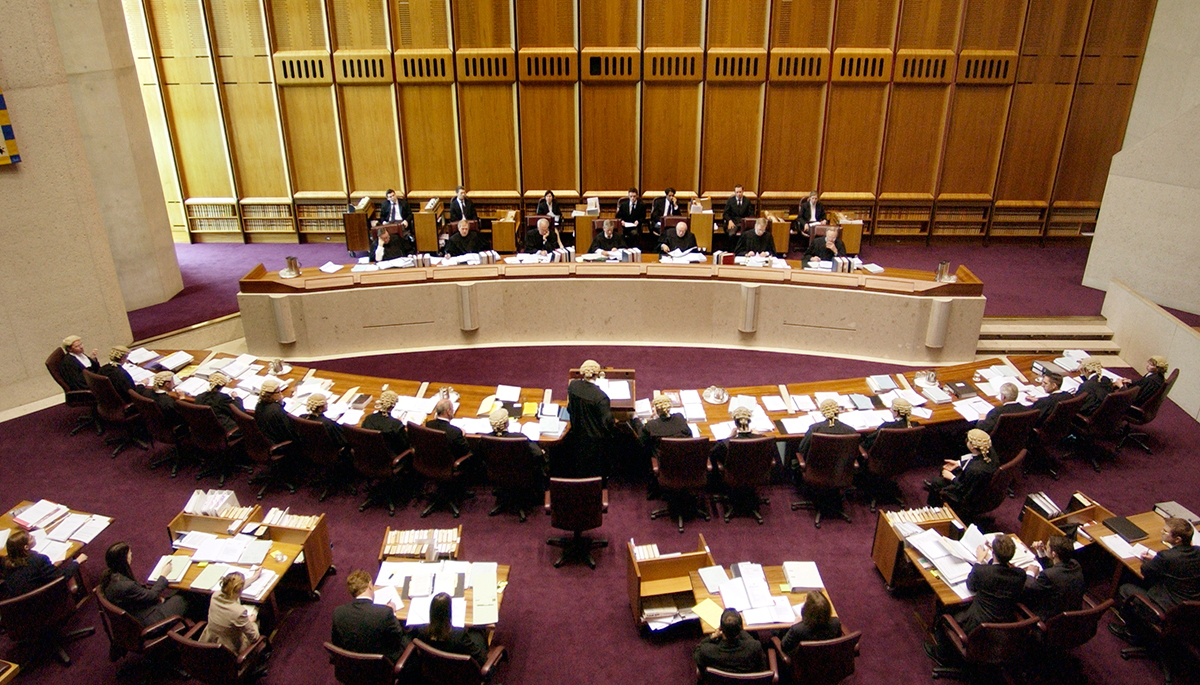Banner

Statutory Law
-
How laws are made
 In Australia, laws are made:
In Australia, laws are made:
* by politicians in Parliament
* by judges making decisions about court cases.
Parliament-made law overrules judge-made law if both apply to a case. -
What is the difference between statute and common law?
 A definition of the statutory and common law.
A definition of the statutory and common law.
Criminal and Civil Law
-
Chapter 4: What the law deals with
 Law can be divided up in a number of ways. It can be divided into ‘statute law’ and ‘common law’, and can also be divided into ‘public law’ and ‘private law’.
Law can be divided up in a number of ways. It can be divided into ‘statute law’ and ‘common law’, and can also be divided into ‘public law’ and ‘private law’.
Under this system, public law deals with relations between individuals and the state, and private law deals with relations between individuals (meaning individual people or organisations). -
The difference between criminal and civil law
 The main function of the law is to protect the lives, liberties, rights and property of citizens. There are two fundamental areas of law: criminal law and civil law.
The main function of the law is to protect the lives, liberties, rights and property of citizens. There are two fundamental areas of law: criminal law and civil law.
-
The age you can be charged
 Animated video explaining how young people can be convicted for a criminal offence.
Animated video explaining how young people can be convicted for a criminal offence.
Common Law
-
Common law rights, human rights scrutiny and the rule of law
 Australia is unusual among common law countries in not having a statutory or Constitutional Charter or Bill of Rights.
Australia is unusual among common law countries in not having a statutory or Constitutional Charter or Bill of Rights.
To watch the entire programme, click HERE.
Law made in courts
Law made in courts is called common law, case law or judge-made law. Common law is made when judges make decisions in courts. When judging cases before them, judges use precedent – decisions made in previous similar cases – to guide their decisions. If no past cases with similar circumstances exist, a judge will make a new decision which would then become a precedent for similar cases in the future. If no statute law applies to cover a particular situation, common law will apply; however, statute law always overrides common law.
Australia inherited its system of common law from Britain. The name comes from the idea that common law applied to everyone in society – the common people.
PEO. (2024, March 13). Sources of law. Parliamentary Education Office. Retrieved on November 7, 2024. https://peo.gov.au/understand-our-parliament/how-parliament-works/bills-and-laws/sources-of-law
Aboriginal and Torres Strait Islander customary law
-
County Koori Court
 The County Koori Court is a specialist court that aims to achieve more participation of the Victorian Aboriginal (Koori) community in the sentencing process in the County Court. It seeks to achieve this through the inclusion of Aboriginal Elders or Respected Persons
The County Koori Court is a specialist court that aims to achieve more participation of the Victorian Aboriginal (Koori) community in the sentencing process in the County Court. It seeks to achieve this through the inclusion of Aboriginal Elders or Respected Persons
from the Aboriginal community and Koori Court Officers in the sentencing process in the County Court. -
Aboriginal Customary Laws
 An outline of key recommendations to recognise Aboriginal customary laws within the Australian Legal System.
An outline of key recommendations to recognise Aboriginal customary laws within the Australian Legal System.



